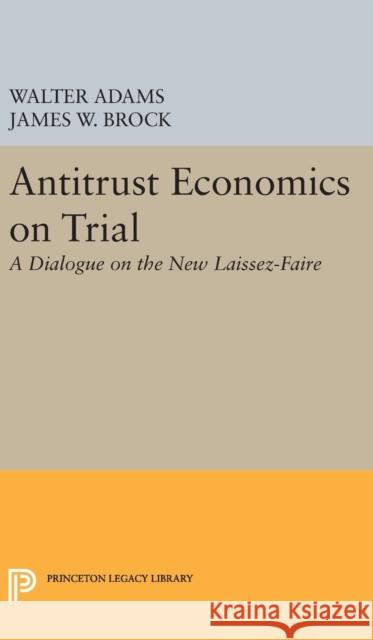Antitrust Economics on Trial: A Dialogue on the New Laissez-Faire » książka
Antitrust Economics on Trial: A Dialogue on the New Laissez-Faire
ISBN-13: 9780691631646 / Angielski / Twarda / 2016 / 148 str.
Antitrust Economics on Trial: A Dialogue on the New Laissez-Faire
ISBN-13: 9780691631646 / Angielski / Twarda / 2016 / 148 str.
(netto: 370,88 VAT: 5%)
Najniższa cena z 30 dni: 387,03
ok. 22 dni roboczych.
Darmowa dostawa!
Is it the central purpose of American antitrust policy to encourage decentralization of economic power? Or is it to promote "consumer welfare"? Is there a painful trade-off between market dominance and economic "efficiency"? What is the proper role of government in this area? In recent years the public policy debate on these core questions has been marked by a cacophony of divergent opinions--theorists against empiricists, apostles of the "new learning" against defenders of the traditional structure-conduct-performance paradigm, "laissez-faire" advocates against "interventionists." Utilizing a distinctively innovative format, Walter Adams and James Brock examine these issues in the context of a courtroom dialogue among a proponent of the new learning (Chicago School), a prosecuting attorney, and a U.S. district judge. In contrast to bloodless "scientific" treatises or ideologically inspired polemical tracts, this book lays bare the central arguments in the debate about free-market economics and the latent assumptions and disguised terminology on which those arguments are based. The dialogue is both gripping and entertaining--designed by the authors to be reminiscent at times of the Theater of the Absurd.Originally published in 1991.The Princeton Legacy Library uses the latest print-on-demand technology to again make available previously out-of-print books from the distinguished backlist of Princeton University Press. These editions preserve the original texts of these important books while presenting them in durable paperback and hardcover editions. The goal of the Princeton Legacy Library is to vastly increase access to the rich scholarly heritage found in the thousands of books published by Princeton University Press since its founding in 1905.











